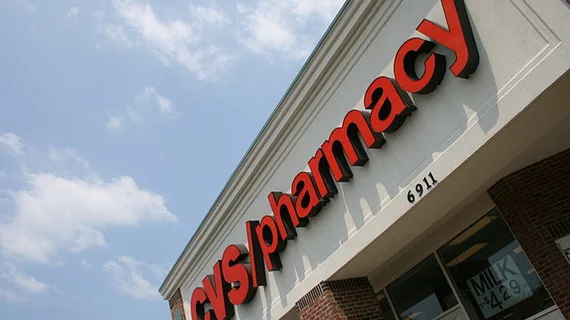CVS Health completes $69B merger with Aetna
The ongoing merger between CVS Health and Aetna officially closed Nov. 28, the companies announced. The $69 billion deal brings together one of the nation’s largest health insurers with a major retail pharmacy chain and pharmacy benefit manager.
The scale of the deal has made it one to watch over the last year.
“Today marks the start of a new day in healthcare and a transformative moment for our company and our industry,” CVS Health President and CEO Larry J. Merlo said in a statement. “By delivering the combined capabilities of our two leading organizations, we will transform the consumer health experience and build healthier communities through a new innovative healthcare model that is local, easier to use, less expensive and puts consumers at the center of their care.”
The deal was originally announced in December 2017 and faced some regulatory hurdles before it was approved by all necessary states on Nov. 26, 2018. The Department of Justice cleared the deal in October with the requirement that Aetna sell its Medicare Part D prescription drug plan business. WellCare Health Plans agreed to purchase the business from Aetna in September.
Aetna common stock shares were sold for $145 in cash and a portion of CVS Health stock, according to the transaction terms. The overall deal valued Aetna at $212 per share, or nearly $70 billion. With the inclusion of debt, Aetna’s total value is $78 billion. The combined company will trade under the CVS ticker on the New York Stock Exchange, though Aetna will operate as a standalone company within the CVS Health enterprise.
New services, care model
The transaction is also exemplary of the ongoing consolidation across the healthcare space. Merlo anticipated that the combined company would create a new model of care, where consumers can receive care services and healthcare products all in one place within their communities. CVS operates nearly 10,000 retail locations and 1,100 walk-in-medical clinics. The retailer has also sought out new partnerships and introduced new telehealth services.
“As the front door to quality healthcare, our combined company will have a community focus, engaging consumers with the care they need when and where they need it, will simplify a complicated system and will help people achieve better health at a lower cost,” Merlo said in a statement. “We are also leading change in healthcare by challenging the status quo with new technologies, business models and partnerships.”
One of the biggest concerns about the transaction by onlookers was the potential impact on competition. Numerous lawmakers and advocacy groups argued the scale of the combined entity would limit competition, reduce choices for consumers and increase prices.
New products and services developed by the combined company “will be broadly available to the healthcare marketplace,” regardless of insurance provider or PBM, according to the announcement. CVS’ walk-in clinics will also continue to be accessible to consumers enrolled in health plans other than Aetna.
Specifically, CVS said its new services and programs would target better management and self-management of chronic disease across the networks, technology and people of the combined company. This includes more services at MinuteClinics, nutritional and behavioral counseling and benefit navigation support, as well as medical equipment assistance, digital health apps and other connected devices.
The first phase of focus will also target boosting preventive care and health screenings through community-based programs. To make care more accessible and affordable, CVS Health will introduce new medical cost reduction programs to avoid rehospitalizations and improve medication adherence. Select MinuteClinic locations will also see expanded hours and services.

